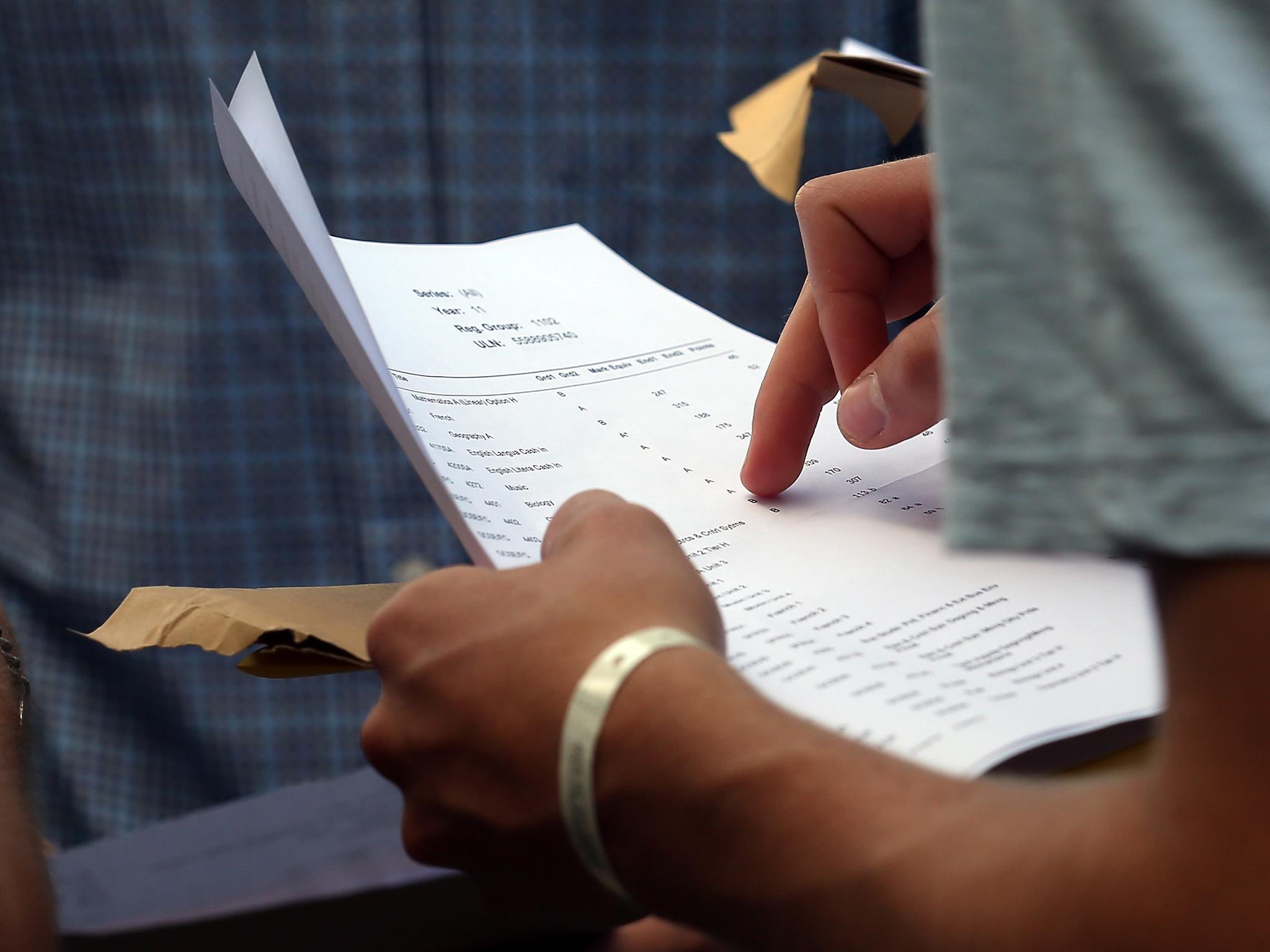Schools are using 'dubious practices' to boost results, teacher's union says
Study concludes under-pressure teachers are 'gaming the system'

Schools are using “dubious practices” and even cheating to achieve better performance results because of the intense pressure of the Government’s test and exam system, a major study for the largest teaching union has found.
One teacher told of being pressured repeatedly to redo GCSE assessments for pupils until the students achieved their target grades, the study by emeritus professor Merryn Hutchings of London Metropolitan University for the National Union of Teachers (NUT) found. Another teacher told of a colleague who boasted of helping their class of 11-year-olds with the answers in their SATs.
In a separate incident, a primary school teacher was told to falsify documents in order for pupils to qualify for extra time on their SATs. Teachers were also told to complete assessments in pencil so that they could be “doctored” by school managers to show the right picture for Ofsted.
The study concluded there was “evidence that teachers in England are ‘gaming the system’, because they are under pressure to achieve good results. In some cases they are being told to cheat. Such practices are increasing in response to the intense pressure on school leaders and teachers to raise attainment as measured by tests and exams.”
Teachers also reported “unprecedented levels” of school-related anxiety, stress and mental-health problems amongst both primary and secondary pupils, leading the NUT to call on the Government to abandon its plans to increase assessment of schools.
The Government’s focus on literacy, numeracy and academic subjects had narrowed the curriculum and reduced the amount of time for creative teaching, investigations, practical work and reading, the report found.
Secondary school pupils were entered for exams in academic subjects they weren’t interested in so as to boost the school’s league-table performance – leading to disaffection and poor behaviour among some students.
A spokesman for the Department for Education said: “Part of our commitment to social justice is the determination to ensure every child is given an education that allows them to realise their potential. That’s why we are raising standards with a rigorous new curriculum, world-class exams and a new accountability system that rewards those schools which help every child to achieve their best.”
Join our commenting forum
Join thought-provoking conversations, follow other Independent readers and see their replies
Comments
Bookmark popover
Removed from bookmarks